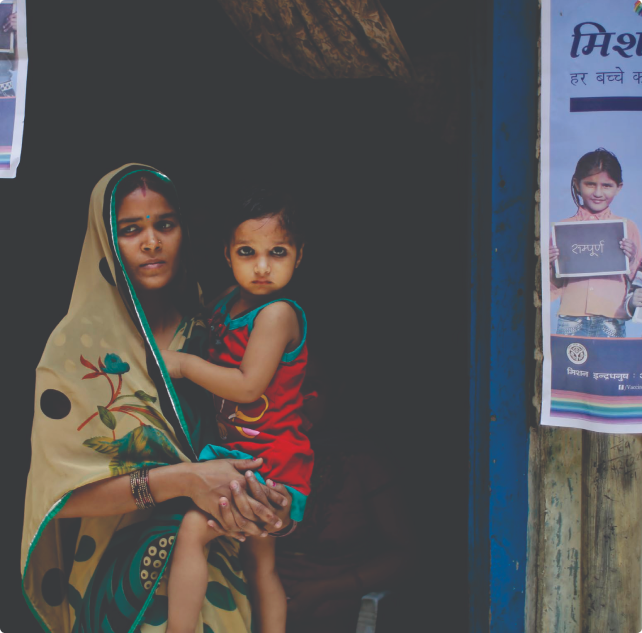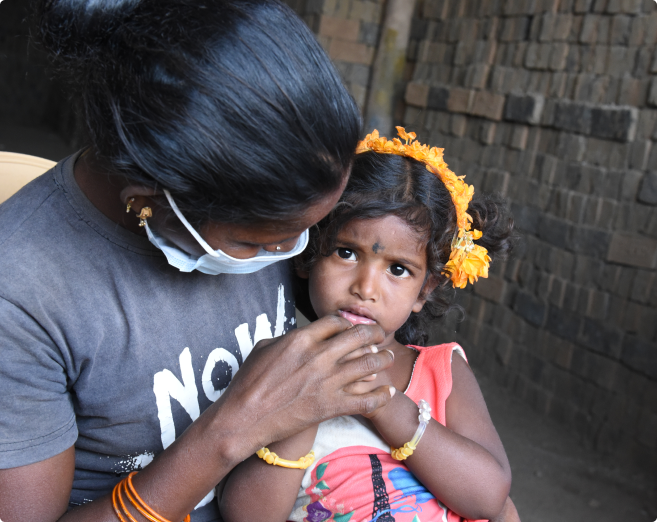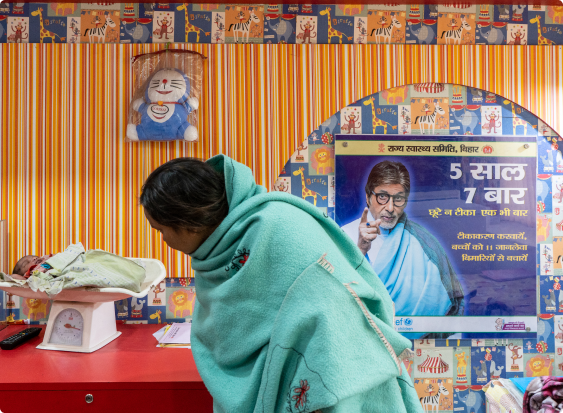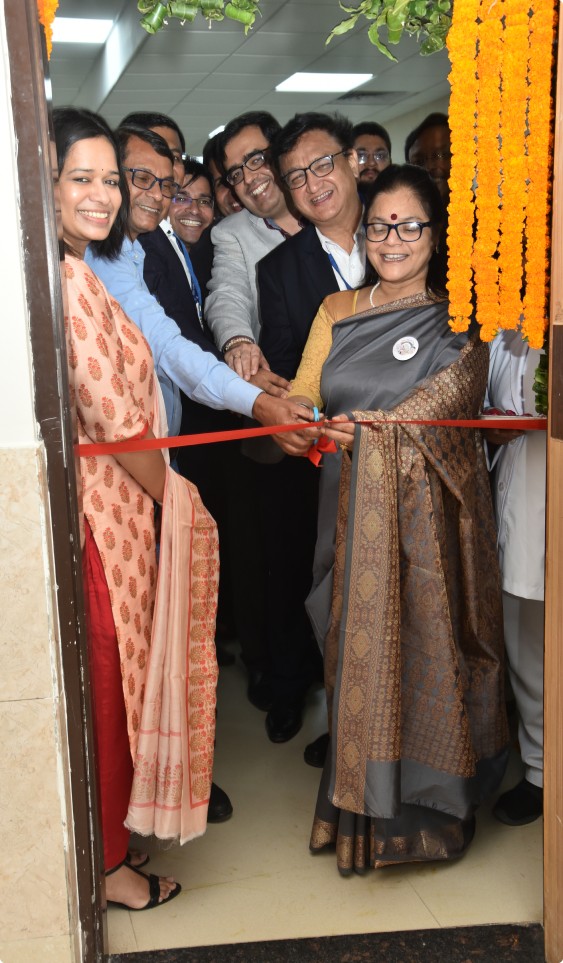
Duration
2020-2025
Key Partners
NUHM, GoI
Funder
Gates Foundation
Coverage
Bihar, Uttar Pradesh
Service
Improving Urban RI Services
The Gates Foundation is supporting a 3-year Urban Routine Immunization (RI) project implemented by JSIPL in 23 National Urban Health Mission (NUHM)cities falling in 12 districts (3 in Bihar and 9 in Uttar Pradesh). The project, launched in December 2020, works closely with the government at all levels to assist intervention geographies in improving Urban Routine Immunization (RI) coverage. It has also set up model immunization centre at Gorakhpur, Uttar Pradesh.

To establish RI service delivery models for urban areas and create community demand for RI services with a particular focus on reaching marginalized populations of the urban community
To strengthen urban RI service delivery mechanism under NUHM infrastructure
To expand coverage for COVID-19 immunization and service delivery
The urban RI Project, which is being implemented in the states of Bihar and Uttar Pradesh, follows a unique 5-D approach to address RI coverage and equity issues. The 5-D Approach covers the five critical “D’s” of immunization: diagnosis, design, delivery, demand, and diffusion. It includes designing feasible and scalable interventions to address the immunization needs of under-served communities facing multiple challenges, including social and financial security. The project invests in integrating and converging with other ongoing national programs that expand and enhance immunization service delivery in an evolving urban sphere. The Project partners withother urban stakeholders to strengthen existing governance mechanisms, data-driven approach, and people-centric quality assured service delivery in a decentralized manner.



By 2023, the project is expected to deliver a feasible, scalable, and sustainable model for improving Urban RI service delivery.
Project learnings/best practices will be disseminated among national and global public health communities.